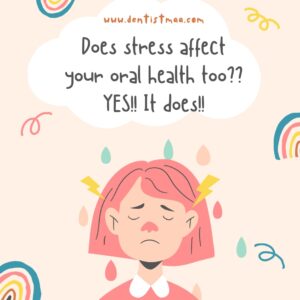
STRESS, a feeling of emotional and physical tension, is commonly seen which we find very reluctant to accept.
In countries like ours, where it is considered to be a taboo to be stressed or depressed, we hide it, thinking what people will think, as it is said, “Log kya kahenge”.
Seeking for a professional help is thought upon as something unthinkable and again, “Log kya kahenge” sets in.
But, is seeking for help really that bad?? If we can visit a doctor for our physical health, then what is wrong to consult for mental health and well being.
If the mental health is not good, then directly or indirectly it will cause changes and problems in the physical health.
Not just the vital organs of our body, but stress also affects the Oral Health. If the oral health is affected, it will result in affecting the other parts of the body as well. When you have pain or discomfort of any kind in your mouth, you will not be able to eat properly. And when you can not eat properly your body doesn’t get the proper nutrition, therefore affecting your physical health as well. So, here is how your oral health is affected when you are stressed.
Poor Oral Hygiene
First and the foremost when we are stressed we care less about ourselves and surely ignore the oral hygiene. We brush for less amount of time, forget to floss, ignore rinsing after meals and so on. If the duration of the stress is short, the effects would be temporary and if the duration is long, the effects would most likely be permanent and will affect your oral health drastically. Eventually you will start getting cavities, gum diseases and other oral problems which would require you to get a proper treatment done.
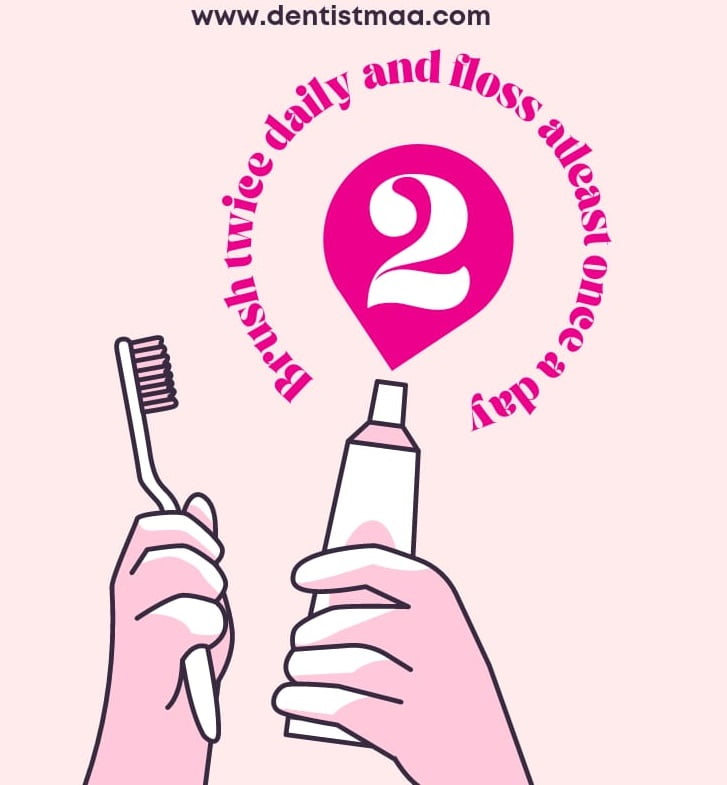
Prevention:
- Brush twice a day using a pea size of fluoridated toothpaste.
- Rinse your mouth after every meal
- Visit your dentist once every 6 months for a routine dental examination
- Drink plenty of water
Dry mouth
Dry mouth is mainly seen in women after menopause, which is a result of hormonal changes. But stress is another factor which causes dry mouth. The dryness thus leads to other problems like dental cavities and periodontal disease.
Sometimes when you are under medication for stress, depression or anxiety, these medicines can also lead to dry mouth, for which you should inform your doctor and it can be treated accordingly.
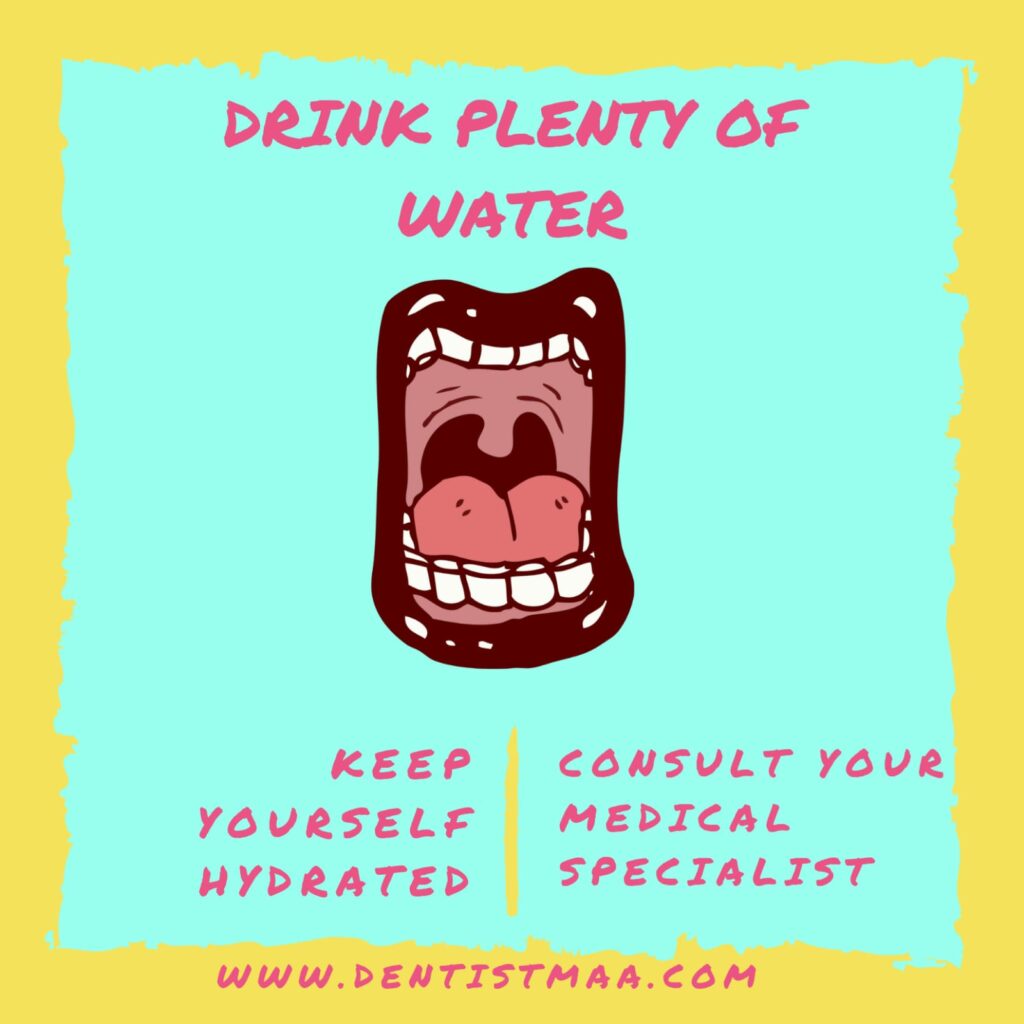
Prevention:
- Drinking plenty of fluids is the key
- If you are on antidepressants and having dry mouth, visit your medical specialist
- Chew on sugarless gum
- Try Saliva substitutes
- Do not breath through your mouth
Grinding or Clenching of Teeth
Grinding of teeth is mainly seen in stress, anger or anxiety. Grinding in the night is known as Bruxisim and in the day is known as Bruxomania. Most of the time you grind your teeth in the night and might not be aware of it. This will lead to damage to the teeth, problems in your temporomandibular Joint (located infront of your ears), soreness in the muscles around your head and jaws.
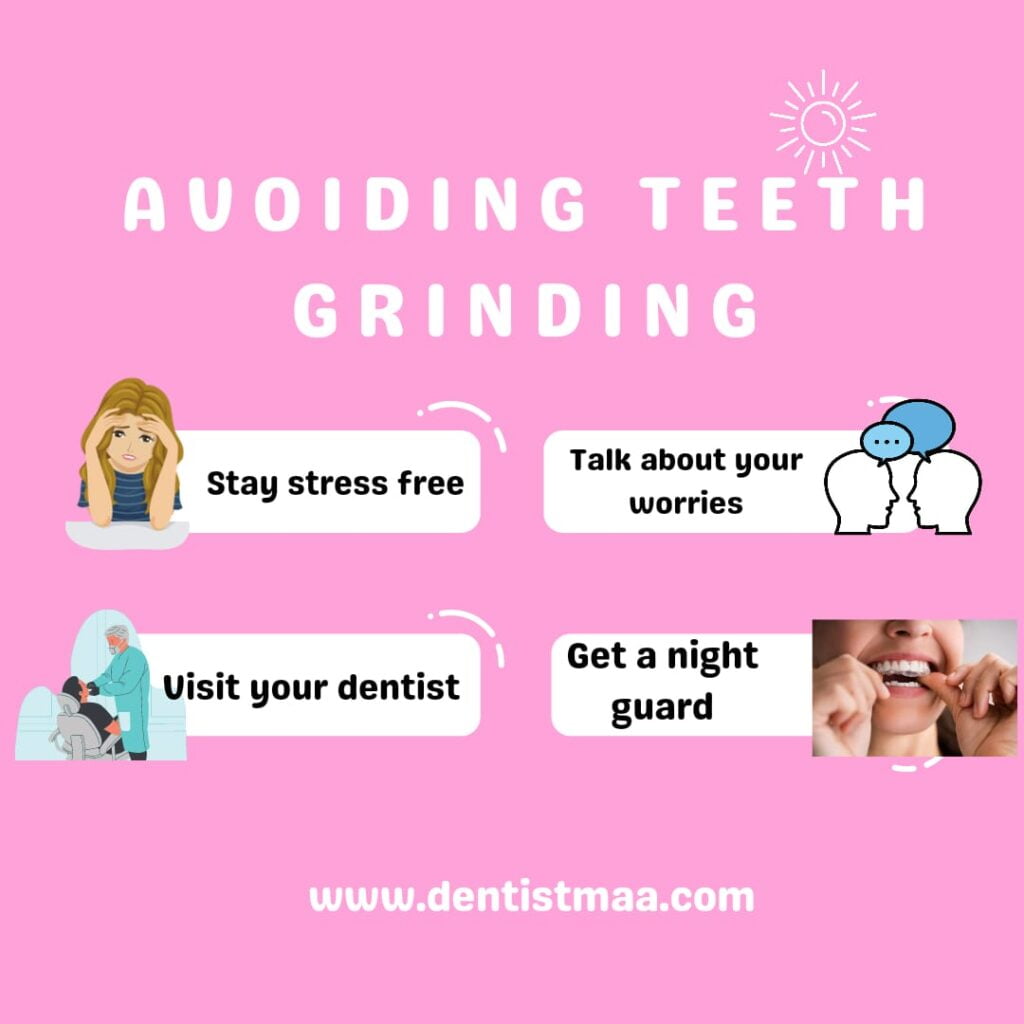
Prevention:
- Stay stress free
- Talk about your worries to someone who understands you or a medical specialist (psychologist)
- Visit your dentist once every 6 months for a routine dental examination
- Get a night guard
Temporomandibular Joint (TMJ) Disorders
The temporomandibular joint is the joint infront of the ears and is connected to various muscles. The TMJ helps in the opening and the closing movements of the jaw. When there is stress and we grind the teeth, this causes spasm in the muscles and therefore causes difficulty in opening and closing of the jaw. So, along with the soreness in the muscles, slowly you start developing TMJ disorders, which are relatively more difficult to treat.
So, besides taking just an analgesic when you have pain around the muscles of your ears, it is better to visit a dentist and get a proper clinical examination done.
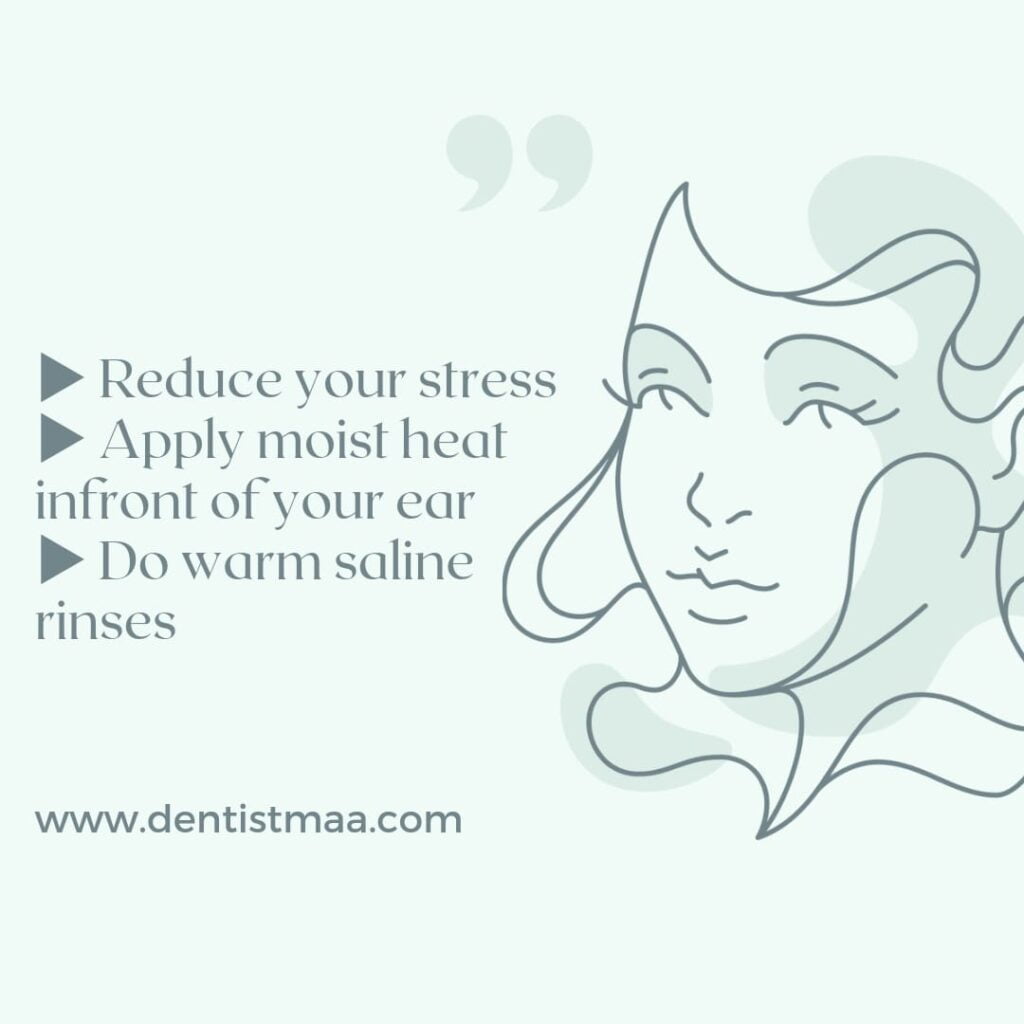
Prevention:
- Reduce your stress
- Dip a towel in a hot water and squeeze it. Then apply the towel in front of your ear and around the muscles of your face. Repeat it at least twice a day for 7-10 days
- Do warm saline (warm water with salt) rinses 3-4 times a day
- Visit your dentist and he or she will prescribe you with muscle relaxants
Periodontal Disease
Periodontal disease involves the gums and the other structures surrounding the teeth. The periodontal disease is caused by poor oral hygiene, diabetes and stress. This periodontal disease can cause bleeding gums, gum infections, your teeth to be loose. All this can also lead to bad breath and difficulty in eating, pain and discomfort.
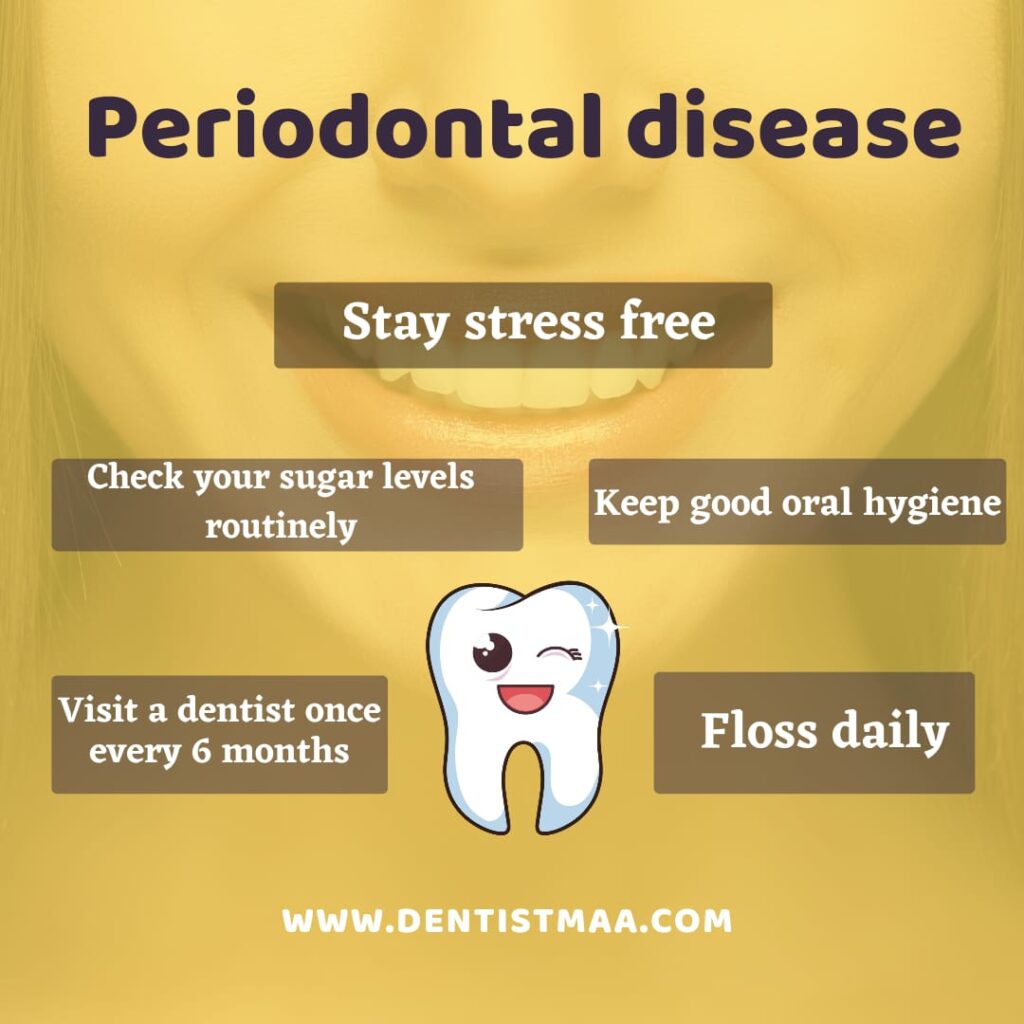
Prevention:
- Once again, stay stress free
- Maintain good oral hygiene, by brushing twice a day
- Floss daily. Floss at least once before bed time.
- Maintain your sugar levels
- Visit a dentist once every 6 months for a routine dental examination
Canker Sores
Also known as the mouth ulcers, canker sores are very commonly seen during stress. These are very painful, but not contagious or dangerous. They heal on there own within a span of 7-10 days. But lead to difficulty in eating, drinking, brushing and sometimes even talking.
Certain studies have revealed that students have more mouth ulcers during exams and considerably less when they are on vacations.
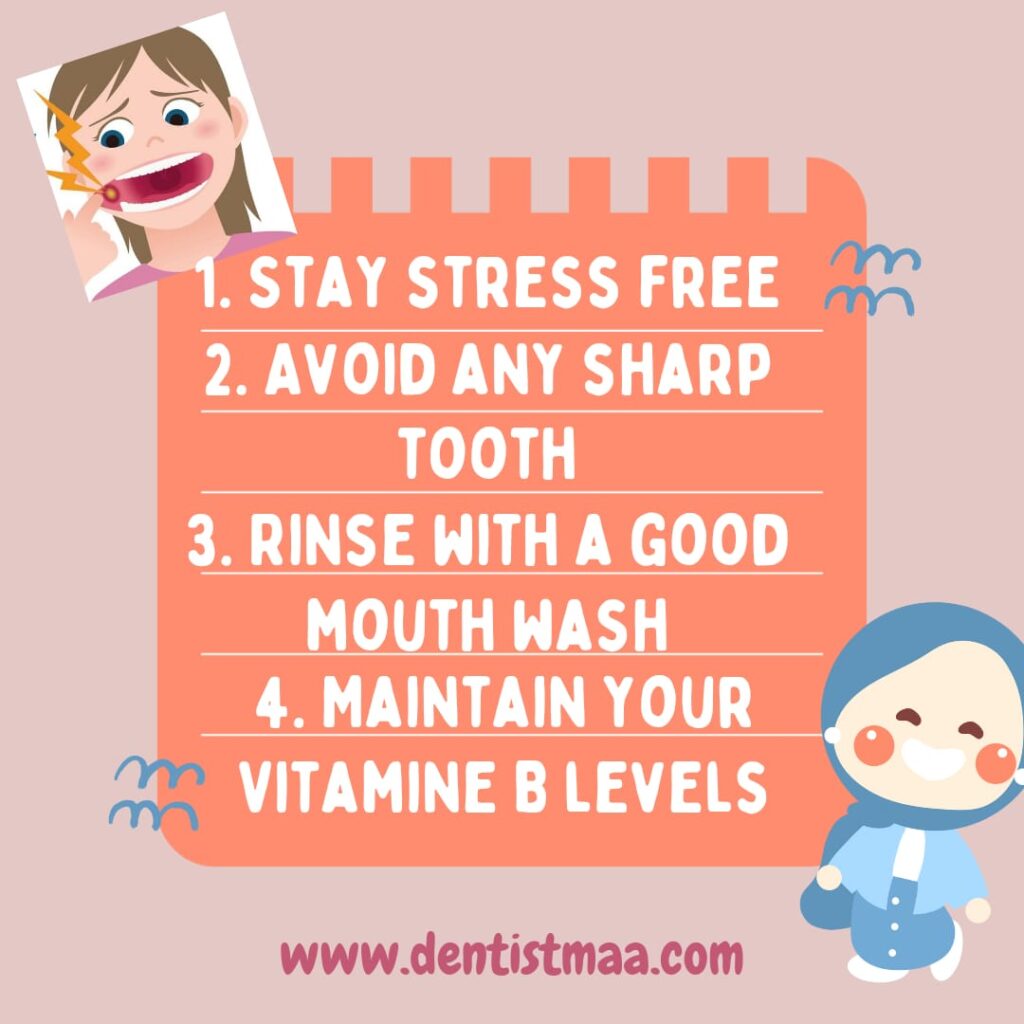
Prevention:
- Stay stress free
- Avoid any sharp tooth
- Rinse 2-3 times a day with a good mouth wash. You can also do warm saline rinses
- Maintain your Vitamin B levels
Cold Sores
Cold sores are small tiny ulcers caused by the Herpes Simplex Virus (HSV).
When we are stressed our immunity levels are low which might cause the dormant HSV to get active and cause the infection. They appear as tiny painful fluid filled blisters or ulcers mostly found in clusters. These are contagious and heal within a period of 2-3 weeks. So, it is advisable not to touch the sores even with your bare fingers.
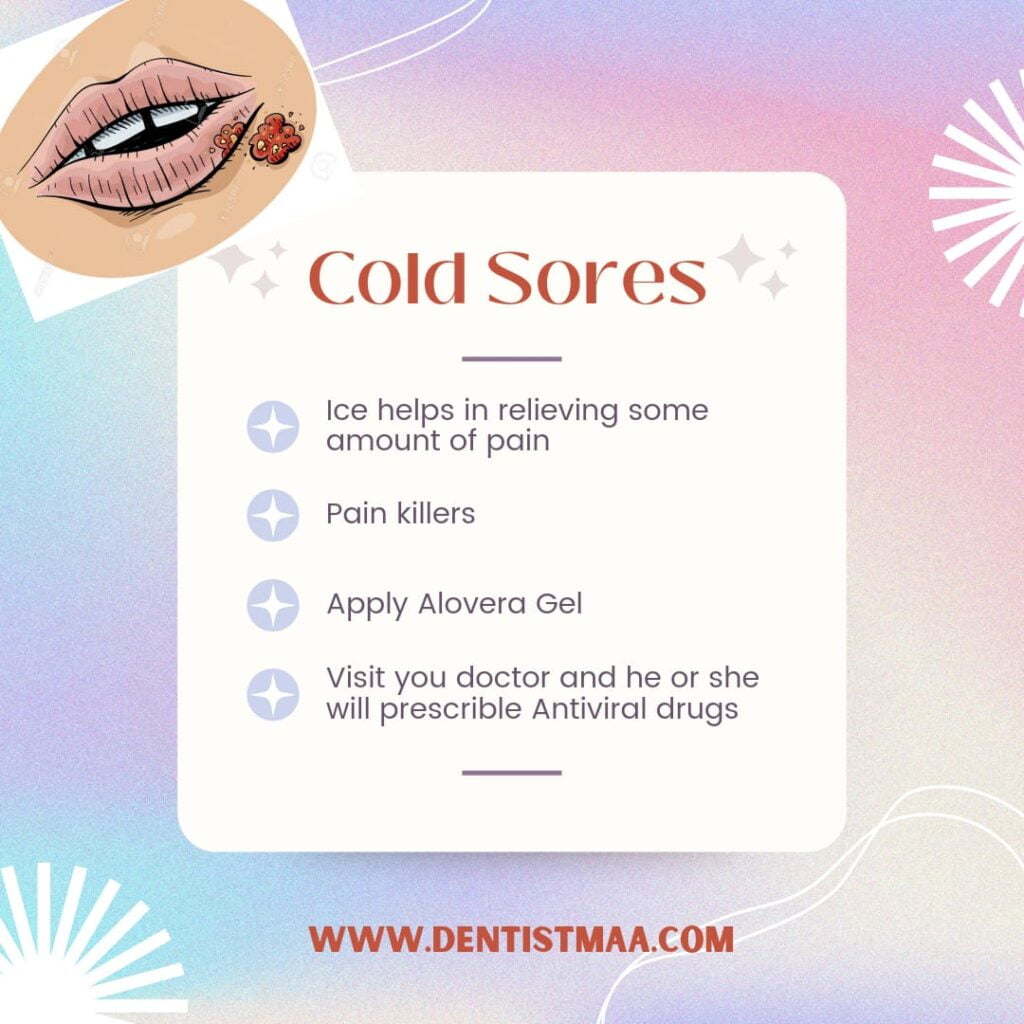
Prevention:
- These are self limiting, but you can apply ice to reduce the pain or can take pain killers
- Aloevera gel can be applied
- Your doctor might prescribe antiviral drugs to you for the cold sores
There is a lot that can happen in your body, just by being stressed. So, the best thing to do is stay stress free as much as you can.
During the COVID times it has been seen that stress and depression has become normal among a large amount of population.
But what we need to remember is, the future is not what we can take care of, the present is what matters the most.
Stay stress free, stay happy!!

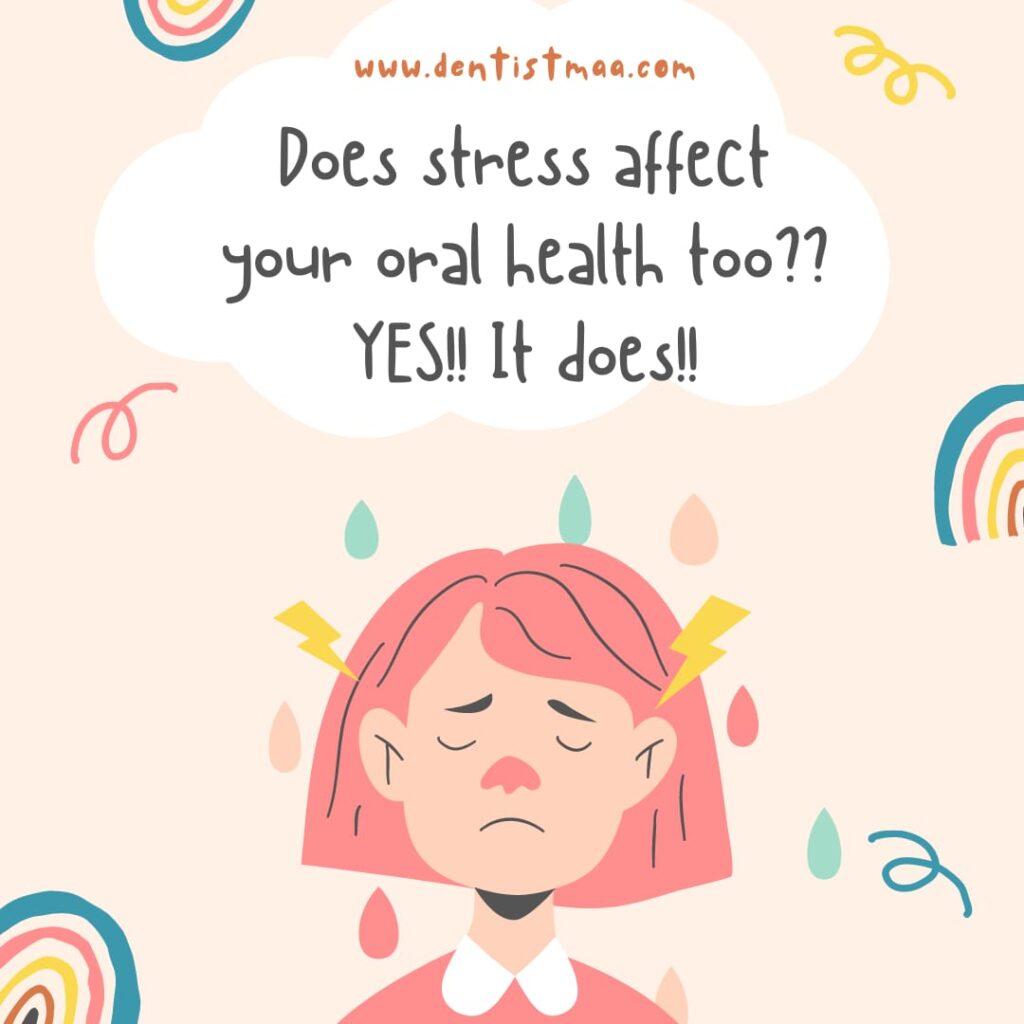

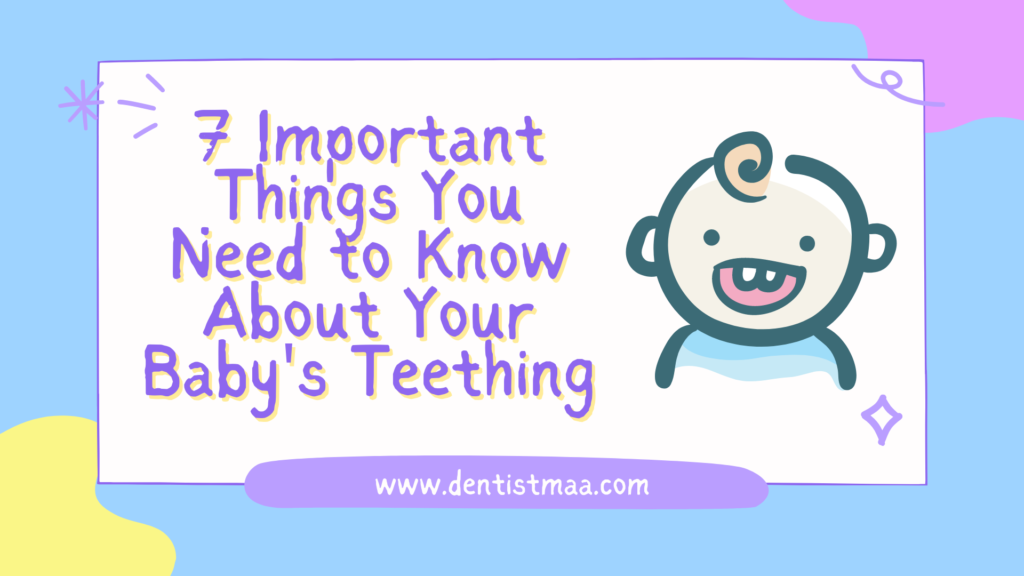
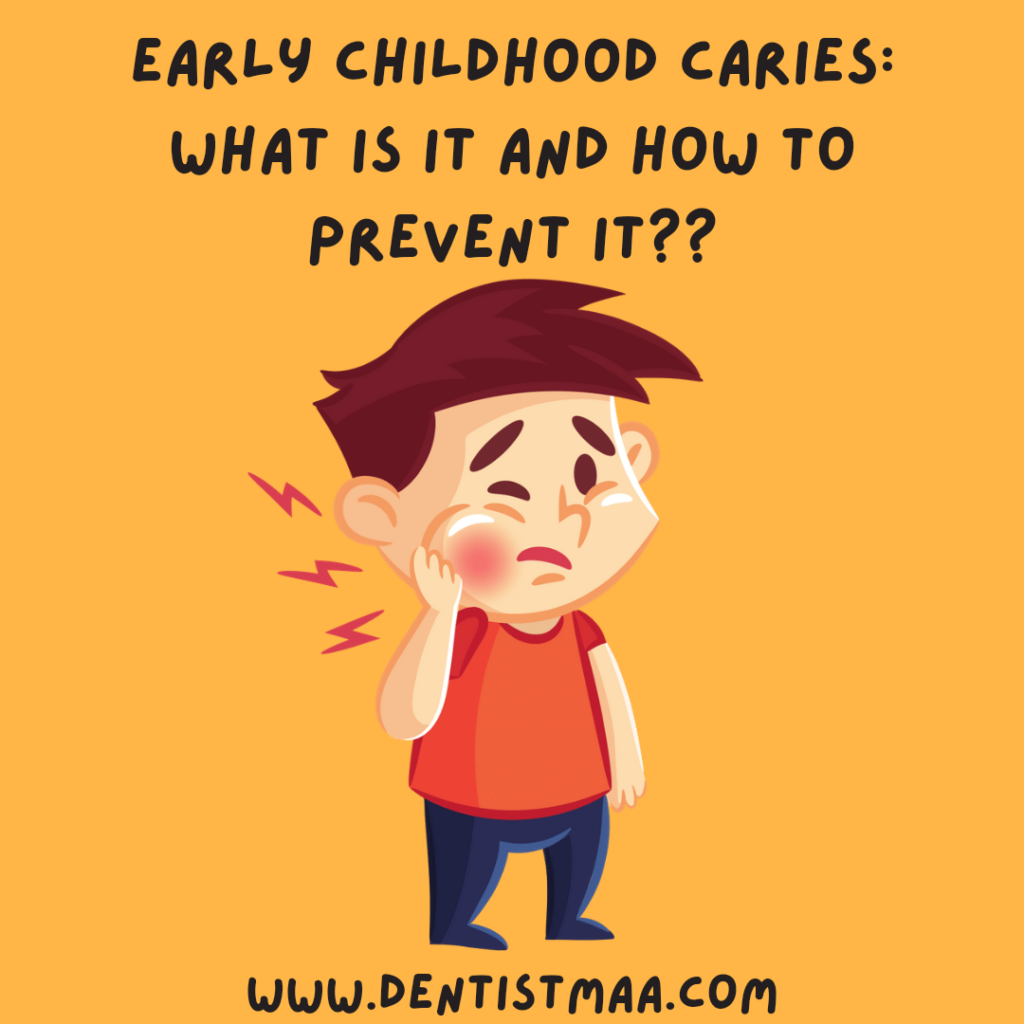
Useful information
thank you so much 🙂